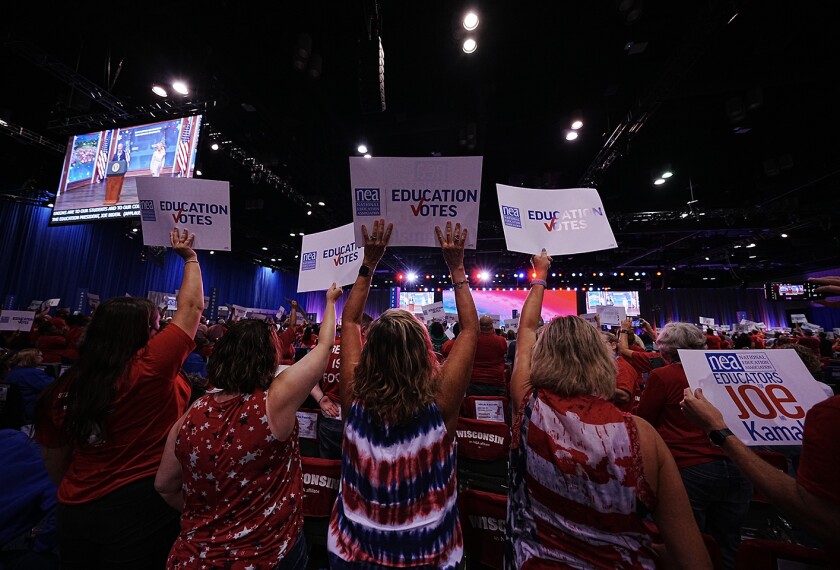Teachers may be heartened by a new report from the College Board’s Center for Innovative Thought that urges the nation to give them more respect, dramatically increased compensation, and better working conditions. Encouraging—but as an old friend used to say, “From their lips to God’s ears.” And that is undoubtedly what it will take for most of the recommendations to become reality.
In nearly all respects, “Teachers and the Uncertain American Future” echoes several similar reports in recent years. Noting that nearly half of new K-12 educators leave the field within five years, the Center calls for efforts to recruit the best and brightest, increase the racial diversity of the profession to reflect the general population, address the shortage of well-prepared math and science teachers, and improve teacher preparation in both conventional and alternative programs. It also recommends more professional development and planning time, and mentoring for new teachers.
The odds of such pay increases are slim to none.
The recommendation that distinguishes the report from its predecessors is the dramatic proposal to create a national “Teachers’ Trust” fund to raise compensation by 15 percent to 20 percent now and up to 50 percent in the “foreseeable future.” Along with raises, the report proposes 11-month contracts, career ladders, and “additional salary increments (funded by the private sector) for teaching in challenging schools and in shortage disciplines, for exemplary contributions to the profession, and for teaching and success in high-level courses.”
As in previous reports, the case for the Center’s recommendations is based largely on the need for the United States to improve student achievement significantly if it is to prosper in a competitive global economy. Compelling as this argument may be, it’s not likely to muster the support necessary to encourage the federal and state governments to adopt recommendations as expensive—and often as controversial—as these will be.
Our nearly 3 million teachers represent an enormous work force with instructional salaries and benefits costing $215 billion in 2002-03. The annual cost of a 20 percent increase, plus 10 percent for the additional increments, would be $64.5 billion. The report doesn’t define “foreseeable future,” but lacking a crystal ball, it can’t be more than a half-dozen years, at which time the increase would be well over $100 billion.
Improved working conditions would probably be a big help in recruiting and keeping teachers.
Given the coming retirements of the baby boomers, rising health care costs, deteriorating infrastructure across the country, energy needs, and a variety of other pressing demands on the economy, the odds of such pay increases are slim to none.
Even without substantial pay increases, however, improved working conditions would probably be a big help in recruiting and keeping teachers, but the Center breaks no new ground here. A significant percentage of teachers cite “bureaucracy” as their reason for leaving the profession, and public education will likely continue to function in such a manner, with teachers at the bottom of the organizational chart. Only profound changes in the way schools are governed, organized, and operated are going to make them more hospitable places for teachers to create real learning centers. Without these changes, no amount of compensation is going to result in the kind of students the Center says we need to meet the demands of the 21st century.
But the area in which the new report truly falls short is teacher preparation. Although it alludes to long-standing criticisms of teacher-prep programs, it glosses over the continuing failure of colleges and universities to take the task seriously. “The current teaching preparation system, despite improvements, does not meet all the nation’s needs,” the report concedes in a glaring understatement. That may be partially explained by the fact that seven of the Center’s 13 members are from higher education, as are all eight members of its advisory committee. Only one member of the Center represents public schools—the former superintendent of San Francisco.
Much as I hate to say it, I think the Center for Innovative Thought has engaged in some serious wishful thinking.




